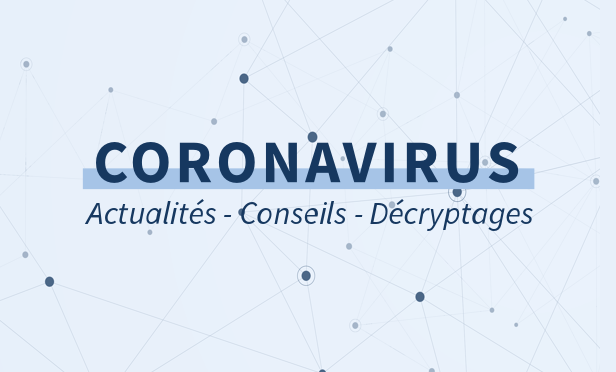Hello,
To discover
Covid-19: vaccination as the only remedy
The masks fall off, and it's a surprise.
At the end of the Defense Council on Wednesday, Jean Castex announced
the lifting of the
compulsory
wearing of the mask
outdoors from this Thursday and
the end of the curfew
next Sunday, ten days before the scheduled date.
It must be recognized, however, that many French people had taken the initiative and were exempt from the latest rules in force.
The reason for this early release?
The
reassuring figures,
with less than 5,000 infections per day, and the
progress of vaccination
, opened Tuesday to minors over 12 years.
It remains to convince the reluctant now and maintain the rhythm of the injections during the summer.
Good reading,
Camille Lestienne, journalist at
Le Figaro.
1. Take off the masks
Wearing a mask is no longer compulsory outdoors from Thursday, June 17 in France.
MEHDI FEDOUACH / AFP
The French freed before their time.
"We are living an important moment, we are living a happy moment of a form of return to normal life"
, welcomed the Prime Minister Wednesday after the Defense Council noting the lifting of the wearing of the mask outside on Thursday and of the curfew next Sunday.
It's a surprise decision, but it has been germinating for a while.
“The curfew is no longer useful.
You have to be realistic, there are Euro football matches, soon the Music Festival ”
, confided a government adviser earlier this week. Difficult indeed to fight against the general relaxation observed in the population. For many months, the French have played the game of health rules but since the beginning of June, young and old have braved the prohibitions and gathered in wild parties or with a drink in hand on the sidewalks. And the police no longer have the heart to sanctions. As temperatures rise, wearing a mask also became less bearable. But be careful, it is not a question of putting it away altogether. It remains compulsory outdoors in places where people gather, such as queues or markets, but children can store them in their pockets in the playground. Inside, in shops,offices, transport, it is obviously the rule.
Read also: Wearing a mask, curfew: "The end of the night"
The past of discord.
However, not all the rules are lifted.
While the gauges will go to 100% on June 30, the sanitary pass required for events of more than 1,000 people is cringe.
Festival professionals denounce a "double standard" while amusement parks have obtained a higher threshold, at 5,000 people, for their outdoor shows.
A difference in treatment which is important when the French seem to favor places without a sanitary pass
“All our members alert us, they no longer sell any tickets.
We were the good students to have a respectful protocol, it is difficult to find artists who agree to perform in front of a seated audience, and now the government is sticking a knife in our back? ”
, indignant the general delegate of the Union of contemporary music (SMA).
Read also: Health pass, Sport pass, Culture pass, and French passes away
2.30 million first-time vaccinated
Vaccination against Covid-19 was extended to young people over 12 years of age on June 15.
COME SITTLER / AFP
30 million and after?
With a few days ahead of schedule, France passed the threshold of 30 million first-time vaccines last Saturday. More than 45% of French people have received a first dose of Covid vaccine while 25% benefit from a complete vaccination schedule. We must now continue on this path while the government is targeting 35 million vaccinated with two doses at the end of August. According to the Institut Pasteur, at least 46 million people should be vaccinated to abandon all barrier gestures. Certain fragile populations are still insufficiently protected. This is the case with overweight people, who are likely to develop severe forms of the disease. Only 47% of people suffering from severe obesity received a first dose according to Health Insurance.The government also wants to facilitate vaccination during the summer. To do this, it will widen the interval between the two doses of Pfizer and Moderna vaccine. From 42 days initially, it will be extended between 21 and 49 days to allow French people going on vacation to schedule their second injection more easily. So what is the ideal timeframe? According to specialists, it is not a problem to space out the doses but frail or elderly people have every interest in bringing the two doses together to be "So what is the ideal timeframe? According to specialists, it is not a problem to space out the doses but frail or elderly people have every interest in bringing the two doses together to be "So what is the ideal timeframe? According to specialists, it is not a problem to space out the doses but frail or elderly people have every interest in bringing the two doses together to be "
completely protected
”as quickly as possible.
Read also: These eight preconceived ideas circulating about anti-Covid vaccines
The numbers to remember
31 million
people (or 46.4% of the total population and 59.2% of the adult population) received a first dose.
16.9 million
people have a complete vaccination schedule (i.e. 25.4% of the population and 32.3% of the adult population)
Source: Public Health France as of June 16
The children enter the round.
The executive activates an additional lever to accelerate the vaccination campaign: the opening of vaccination to adolescents over 12 years old. As of Tuesday, adolescents can benefit from Pfizer's vaccine and many have signed up. On Monday, one in four appointments on the Doctolib platform was reserved for a minor. The question of the benefit-risk balance for children remains, however, debated. With a risk of 1.7 deaths per million under 18, the individual benefit seems slim. The legitimacy of their vaccination is based rather on the common good
"It is essential to start vaccinating adolescents this summer to achieve collective immunity by the start of the school year"
,considers Professor Odile Launay to the
Figaro
.
For the director of the WHO, on the other hand, we should first vaccinate vulnerable populations around the world before vaccinating adolescents in rich countries.
Read also: A teenager, three agreements: a very supervised vaccination
3. Where is the epidemic?
Weekly incidence rate by department of Covid-19 per 100,000 people.
7-day rolling average.
FigData
They are good these figures which allowed the early lifting of the wearing of the mask and the curfew.
Hospital pressure continues to decline with less than 2,000 people placed in intensive care.
The arrival of new patients has also slowed down sharply, as has contamination: just over 3,000 new cases detected in 24 hours.
But the epidemic does not allow itself to be completely forgotten.
On Monday, six cases of the Delta variant were detected in a college in Évry-Courcouronnes in Essonne causing a "
wind of panic
" in the establishment and implementation of a testing campaign.
The figures to remember in France
1873
patients in critical care (-79 since the day before)
11,519
hospitalized patients (-489 since the day before)
3,058
new cases detected in 24 hours
45
deaths in 24 hours (110,607 deaths since the start of the epidemic)
Source: Public Health France as of June 16
4. The quote
The pandemic has changed the way we see things.
Going abroad also means leaving father, mother, brothers and sisters, which is not trivial.
Jean, former expatriate in China
Like a sort of long Covid, the pandemic has turned our lives upside down, sometimes deeply and lastingly. Expats, who until now juggled their work abroad and their family remained in France, have reviewed their choice in the light of confinements and health restrictions. Journalist Corinne Caillaud has collected testimonies from French people from China, India or Canada who have returned to settle in France or who are considering it after having undergone the drastic constraints imposed on travel or having feared falling ill. But when some would like to return, others want to leave. Not beyond the borders but in medium-sized cities, far from the tumult and the small apartments of the metropolises. The key word for moving candidates? The "city on a human scale". If he is still
"Too early to speak of a real urban exodus"
, assures the SeLoger group,
"it must be recognized that the health crisis seems to boost the power of attraction of small towns, whereas before the first confinement, they tended to be empty for the benefit of the big ones ”
.
And provincial communities are competing in their imagination to take advantage of the windfall: job offers or coworking space, territorial marketing is in turmoil.
More than two-thirds of
Ile-de-France
residents have
"taken steps to leave Île-de-France"
, according to a survey by the Paris Je Te Quitte platform.
To read also: "Beginning of an urban exodus" in 2020: less attractive metropolises?
6. The deconfinement schedule
France is still under
curfew until the night of Saturday to Sunday
.
It is forbidden to leave your home
between 11 p.m. and 6 a.m.
, under penalty of a fine of 135 euros.
However, there are
exceptional reasons
for which a certificate must be presented.
Read also: Curfew certificate at 11 p.m.: download the paper or smartphone form
Emmanuel Macron unveiled the deconfinement calendar on April 29.
Since
May 3
, the restriction on movement beyond 10 km has been lifted while middle and high school students have returned to their establishments.
On
May 19
, the terraces of bars and restaurants reopened, as did non-essential shops and cultural venues.
A new step was taken
on June 9
with the end of the curfew to 11 p.m., the reopening of indoor rooms in restaurants and cafes as well as sports halls and indoor swimming pools.
The total lifting of the curfew, initially scheduled for June 30, has been brought forward by 10 days and will be effective on Sunday,
June 20
.
7. Reflexes to keep
The virus is transmitted by droplets and aerosols.
The barrier gestures detailed by the Ministry of Health must be observed to protect themselves and others:
Wash your hands regularly or use hydroalcoholic gel
Cough or sneeze into the crease of your elbow
Use disposable tissues
Wear a mask in public areas when the distance of two meters cannot be respected
Maintain a distance of at least two meters from others
Limit social contacts as much as possible (6 maximum)
Avoid touching your face
Air the rooms as often as possible, at least a few minutes every hour
Greet without shaking hands and stop hugging
8. What to do in case of symptoms?
The disease manifests itself with several symptoms, most often cough and fever.
The most important thing is to get tested.
According to the recommendations of the Ministry of Health, you should, in case of symptoms, stay at home and contact your doctor who will prescribe a test.
While waiting for the result, you must isolate yourself, wear a mask and prepare a list of people you could have infected.
Read also: Test, isolation: the procedure to follow in case of suspicion of Covid-19
See you next week.











